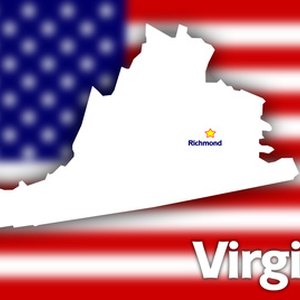
An important part of buying a home is setting up homeowners insurance. If your home suffers damage, you’ll be protected. In the state of Virginia, you’re protected against refusal or policy cancellation without sufficient cause, as well as being charged undisclosed fees.
Virginia Homeowners Insurance Laws
If you have a mortgage, you likely don’t think about your homeowners insurance, as it’s probably wrapped into your monthly mortgage payments. But there are Virginia homeowners insurance laws in place to protect the state’s residents. Those start when you sign up with the policy and they continue protecting you against unfair cancellations.
VA homeowners insurance requirements also protect you against undisclosed fees and charges. It’s important to research those in-depth and pay close attention to what your insurer is charging when the policy renewal notice comes. If your fees or charges change and you sign the policy, the fees will have been legally disclosed.
Refusals and Cancellations
Under VA homeowners insurance laws, an insurance company can’t refuse to sign you to a policy without a legitimate reason. If you’re denied a policy, you should request a written explanation. If you were denied due to incorrect information, you should be allowed to correct the information and resubmit it.
In addition to being unable to deny you without cause, the law also requires insurers to provide a legitimate reason if your policy is canceled after the first 90 days. To meet VA homeowners insurance requirements, insurers cannot discriminate based on the age of your home or your own sex, race, marital status or occupation, among other factors. Being refused insurance by another insurance company isn’t a legitimate reason for an insurer to refuse you a policy.
Reasons for Refusal
Virginia homeowners insurance laws do allow insurers to refuse insurance for some reasons, though. If you stop paying your policy, your insurance company can cancel your insurance. Your insurer can also drop you if you commit a crime and that crime increases the risks against your insured property. If your insurer discovers that you committed fraud or misrepresented yourself when you took out the policy, your insurer can also justifiably cancel your policy.
VA homeowners insurance laws also allow insurers to cancel a policy due to changes in the property itself. If you made physical changes to your home that alter its insurability, for instance, your insurer can cancel. However, this cancellation can only take place after a physical inspection of the premises.
Although your insurer can’t cancel your policy when it’s in effect, that doesn’t apply as you reach the end of your term. Since many policies renew every year, that means your insurer will have numerous opportunities to cancel you during the time you’re in your home. An insurance company must give you 30 days written notice, including both the date of expiration and the reason, before it can cancel you. You’ll have the right to appeal to the Insurance Commissioner if you believe the cancellation wasn’t justified.
Disclosure of Fees and Charges
Full disclosure of fees and charges is also covered under VA homeowners insurance laws. According to Virginia Code 38.2-310, all fees, charges, premiums and other costs associated with obtaining and maintaining insurance must be stated in the policy at the time of signing. If you’re being charged fees that weren’t mentioned up front, check to make sure your insurer is allowed to charge that.
One exception to this part of VA homeowners insurance requirements are fees and charges related to installment payments. If you’re given the option to pay the entire premium at once or pay it in lower monthly payments, your insurer can add a fee to the latter as long as that charge is disclosed to you in writing.
References
- Law Server: Virginia Code 38.2-310: All Fees, Charges, Etc., to Be Stated in Policy
- Commonwealth of Virginia State Corporation Commission: Know Your Rights Regarding Homeowners Insurance
- Effective Coverage: When Your Insurance Policy Goes Up For No Reason
- International Risk Management Institute. "Notice of Cancellation Clauses." Accessed April 10, 2020.
- Insurance.com. "Homeowners insurance survey 2018: Almost half don’t understand liability home insurance, a quarter have no idea how much they have." Accessed April 10, 2020.
Writer Bio
Stephanie Faris has written about finance for entrepreneurs and marketing firms since 2013. She spent nearly a year as a ghostwriter for a credit card processing service and has ghostwritten about finance for numerous marketing firms and entrepreneurs. Her work has appeared on The Motley Fool, MoneyGeek, Ecommerce Insiders, GoBankingRates, and ThriveBy30.
